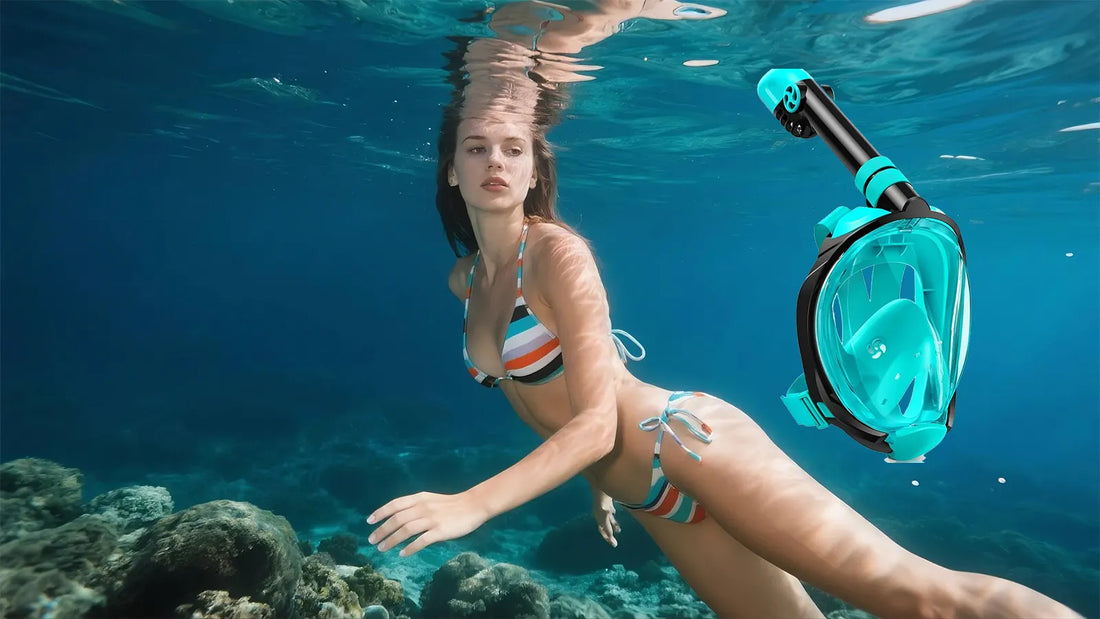Snorkeling is a thrilling activity that allows you to explore the underwater world without the need for extensive training or equipment. But one question often arises: how old do you have to be to go snorkeling? The answer isn't as straightforward as you might think, as it depends on various factors such as safety, physical ability, and local regulations. This guide will provide you with everything you need to know about age requirements and how to make snorkeling a safe and enjoyable experience for everyone.
Understanding the Basics of Snorkeling
Snorkeling involves swimming on the surface of the water while using a snorkel, mask, and fins to observe underwater life. It's a popular activity in tropical destinations, offering a glimpse into vibrant coral reefs and marine ecosystems. While it's relatively easy to learn, snorkeling does require some basic swimming skills and comfort in the water.
Age Requirements for Snorkeling
There is no universal age limit for snorkeling, but most experts recommend that children be at least 5 to 7 years old to participate. This is because younger children may lack the physical strength, coordination, or attention span needed to snorkel safely. However, some tour operators or resorts may have their own age restrictions, so it's essential to check beforehand.
Safety Considerations for Young Snorkelers
Safety is paramount when it comes to snorkeling, especially for children. Here are some key tips to ensure a safe experience:
- Supervision: Children should always be accompanied by a responsible adult who is a strong swimmer.
- Proper Gear: Ensure that the mask, snorkel, and fins fit properly and are comfortable for the child.
- Swimming Ability: Children should be confident swimmers and comfortable in the water before attempting to snorkel.
- Environmental Awareness: Teach children to avoid touching marine life or coral reefs to prevent injury and protect the ecosystem.
Preparing for Your First Snorkeling Adventure
Whether you're a beginner or an experienced snorkeler, preparation is key to a successful outing. Here are some steps to get ready:
- Choose the Right Location: Opt for calm, shallow waters with good visibility, especially if you're snorkeling with children.
- Practice in a Pool: Before heading into open water, practice using your snorkeling gear in a controlled environment like a swimming pool.
- Learn Basic Techniques: Familiarize yourself with breathing through a snorkel, clearing water from the tube, and using fins efficiently.
- Check Weather Conditions: Avoid snorkeling in rough seas or strong currents, as these can be dangerous, especially for beginners.
Health and Physical Considerations
Snorkeling is a low-impact activity, but it does require a certain level of physical fitness. Individuals with respiratory or cardiovascular conditions should consult a doctor before snorkeling. Additionally, older adults or those with limited mobility should choose locations with easy access to the water and consider using flotation devices for added safety.
Environmental Responsibility
Snorkeling offers a unique opportunity to connect with nature, but it's essential to do so responsibly. Avoid stepping on coral reefs, as they are fragile and can take years to recover from damage. Refrain from feeding or touching marine life, as this can disrupt their natural behavior and harm their health. By practicing eco-friendly snorkeling, you can help preserve these underwater wonders for future generations.
Snorkeling as a Family Activity
Snorkeling can be a fantastic way for families to bond and create lasting memories. To make the experience enjoyable for everyone, choose locations that cater to all skill levels and provide opportunities for both shallow and deeper exploration. Encourage children to ask questions and learn about the marine life they encounter, turning the outing into an educational adventure.
Common Myths About Snorkeling
There are several misconceptions about snorkeling that can deter people from trying it. Let's debunk some of the most common myths:
- Myth: You need to be an expert swimmer to snorkel. Reality: Basic swimming skills and comfort in the water are sufficient for most snorkeling activities.
- Myth: Snorkeling is only for young, fit individuals. Reality: People of all ages and fitness levels can enjoy snorkeling with proper preparation and safety measures.
- Myth: Snorkeling is dangerous. Reality: While there are risks, they can be minimized by following safety guidelines and choosing appropriate locations.
Tips for a Memorable Snorkeling Experience
To make the most of your snorkeling adventure, keep these tips in mind:
- Stay Relaxed: Breathing through a snorkel can feel unnatural at first, but staying calm and relaxed will make it easier.
- Take Breaks: Don't overexert yourself. Take breaks as needed to rest and hydrate.
- Capture the Moment: Consider using an underwater camera to document your experience and share it with others.
- Respect the Ocean: Always follow local guidelines and regulations to protect the marine environment.
Snorkeling is an incredible way to explore the underwater world and create unforgettable memories. By understanding the age requirements, prioritizing safety, and respecting the environment, you can ensure a fun and rewarding experience for everyone. So, grab your gear, dive in, and discover the wonders that await beneath the surface!

